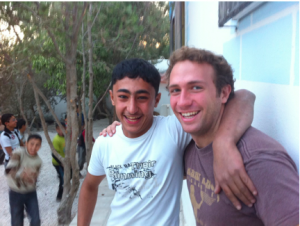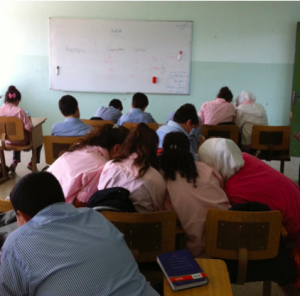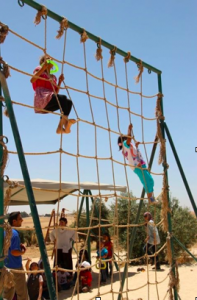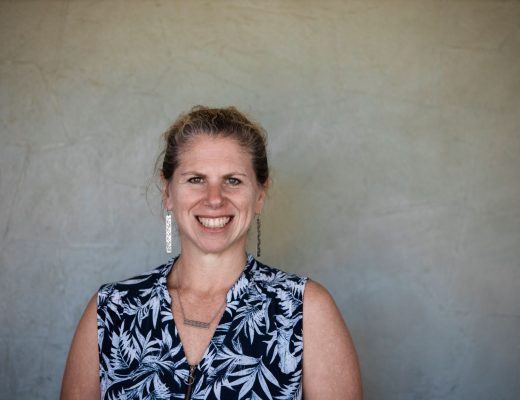
Sharief El-Gabri, 2010-2011, Fulbright English Teaching Assistant to Jordan, with Ahmed, one of the refugee, high-school students who helped run the sports facility in the Gaza Refugee Camp
If you are thinking about applying for a Fulbright grant, you need to consider how you plan to interact with your host community. After all, Fulbright’s core tenet is cultural exchange. Of course, show off your impressive research proposal or your comprehensive English teaching playbook, but your time as a Fulbrighter will likely be memorialized by serendipitous interactions with your community. Embrace those opportunities because you are prepared and have considered how you would like to carve out your Fulbright experience.
Looking back on my Fulbright experience in Amman, Jordan in 2010-2011, I really cherish my time outside of my primary English Teaching Assistantship (ETA) responsibilities. I had sufficient free time to engage in a substantive community engagement project. Outside of my ETA obligations and studying Arabic, I helped build a sports facility in the Gaza Refugee Camp.

Helping 9th grade students with an English grammar lesson at the Model School (at the University of Jordan) in Amman
I knew I wanted to work with one of the many refugee communities in Jordan. Within a month of my time in Amman, I heard of an American who had just constructed a facility in the Gaza Refugee Camp and was looking to empower the community with a sports program! By the end of my year in Jordan, every weekend we had a large turnout of kids who enjoyed the sand pit, ping pong, soccer, and of course, dodgeball. On weekdays, women enjoyed the facility where they took yoga lessons and held bake sales. In the evenings, Palestinian refugees listened to loud music and lifted weights. I’m most proud that the facility still operates and serves the community, thanks mostly to dedicated community members. My modest engagement with an economically and legally disenfranchised refugee community taught me a lot about the privileges I have been afforded and solidified my interest in going to law school.

The Middle East Fitness Initiative organized a special girls’ field trip from the Gaza Refugee Camp to a private playground in Amman. This picture is from a field trip in 2012.
A piece of advice I would like to give Fulbright applicants is: don’t reinvent the wheel. You’ll come into something. Plan at a meta-level how you want to seize your short time abroad, but in the end, jump at opportunities! Naturally, you must discuss some type of engagement for your application, but once you arrive in your host country, you can certainly rely on the Fulbright community or other expatriates who have faced challenges you will likely face. And most importantly, reach out to the local residents. How are you going to engage your new community?
While carving out your Fulbright experience, you’ll likely have to work on your language skills. Studying the language prior to your grant is important, but there’s nothing like living in a country. In fact, a great way to learn a language once you’re situated is to get a tutor! You’ll get intensive one-on-one training for only a slightly greater cost than that of group courses. Embrace the likely steep learning curve ahead! After all, it is your time to interact substantively with your Fulbright hosts and, certainly, new friends.


No Comments